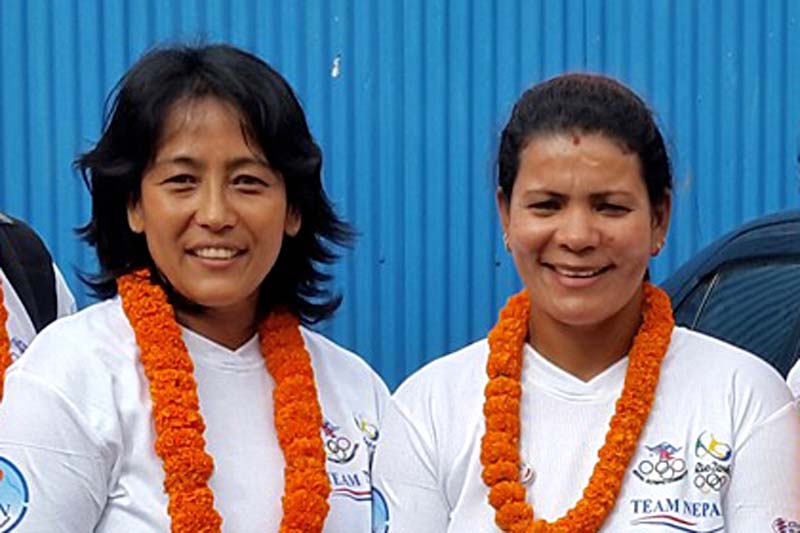Easier to play than coach, say Olympians
Rio de Janeiro, August 19
Olympian coaches believe it’s easier to play than coach athletes in the Olympic Games. Three of the five coaches in the Rio Games are Olympians and they share similar views about preparing the athletes for the biggest sporting platform.
“It’s not easy to be a coach. You have to take care of every small detail as you are responsible for the athletes’ preparation, performance and result,” says taekwondo coach Sangina Baidya, the first Nepali athlete to qualify for the Olympic Games.
Baidya created history in 2004 by earning the Olympics berth for the first time when she finished third in the Asian qualifiers. “As a player, you just need to focus on your game and play on the match day. But a coach needs to look after everything, like diet of the player, whether the player slept well or not and the technical aspects of the game,” adds Baidya. Before Baidya’s qualification, Nepal had been participating in Olympics through wild card entries and Universality Places quota since four boxers and two athletes represented the country for the first time in 1964 Tokyo Games.
“The coach is also responsible of the players’ performance in the match and you need to prepare the athlete mentally and physically for the event. The coach have to play a role of psychologist as well. The player might think too much about the match and take unnecessary pressure, which might affect the performance. At that time, needs to ensure that the player does not take a lot of pressure,” she adds. Baidya says it is always a proud moment to represent the nation in Olympics, as an athlete or a coach. Baidya, the two-time South Asian Games gold medallist, says the preparation part was not different. “As a coach I have been trying to put in the same amount of effort that I did for me in 2004 when I participated in the Olympic Games. I want my player to do well and for that I have not left any stone unturned,” she adds.
Senior athletics coach Pushpa Raj Ojha also has similar views. “It is easy to be an athlete rather than become a coach and prepare the players,” says Ojha. “The job of the players is to go there and run. It’s all over. But the coach needs to be there for each and everything an athlete needs for the show,” says Ojha, who participated in the 1984 Los Angeles Olympic Games. “This is my third time in Olympics. I took part in the 2008 Beijing Olympic Games as a coach apart from playing in 1984. The two roles are completely different and I think the responsibility of a coach is much heavier than of the athletes. You have to go here and there to ensure everything is at right place for the athletes to perform,” says Ojha. “I think I have run more in Rio than I did in Los Angeles. From technical meetings to athletes’ mental situation, a coach needs to stay alert at all the times.”
Another Olympian, Debu Thapa says the job of a coach is tiring. “You have to reach at all the places by yourself and also take care of the players’ training,” says the 2008 Beijing Olympic Games participant. “I had very little pressure when I was a player. I just needed to concentrate on my game, rest were managed by others. But the case is different when you become a coach,” says Thapa, who braved the horrific elevator accident to claim bronze medal in the 11th South Asian Games. Thapa, one of the nine Nepali players injured when elevator crashed down from the sixth floor of a Dhaka hotel, stunned everybody when she announced to play from the hospital bed. She entered the arena carrying the injury and pain. Thapa still believes she is much more player than a coach. “I feel like going into the arena and knock the opponent out,” says Thapa.
Out of the four athletes coached by the three Olympians, four players have already finished their events. While judoka Phupu Lhamu Khatri satisfied her coach by meeting the target of staying for full four minutes against Cuba’s Maricet Espinosa in her 63kg first round bout, athlete Saraswati Bhattarai shattered the 26-year-old national record in 1,500m race. Hari Kumar Rimal had a disappointing outing in 5,000m race as he was way behind his personal mark, while taekwondo’s Nisha Rawal is slated to fight China’s Zheng Shuyin in above-67kg bout on August 20.






